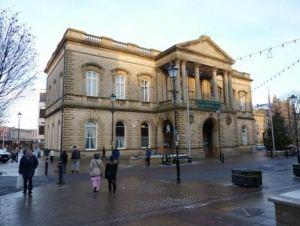 The number of non-white candidates contesting the local council elections last year was just 3.7 percent, indicating a fall in BAME representation in town halls.
The number of non-white candidates contesting the local council elections last year was just 3.7 percent, indicating a fall in BAME representation in town halls.
A report by a cross-party committee of MPs showed a shockingly low proportion of non-white council candidates ran in the 2012 elections.
The figures published by the Commons Communities and Local Government committee indicates there has been no improvement from the last councillors census in 2010 which found that 3.7 percent of all serving councillors were from an ethnic minority.
However the BAME make-up of council candidates has traditionally been higher than the proportion of successfully elected local politicians due to independents and minor parties fielding more diverse candidates.
The latest findings show that at best the composition of local government has not changed in the past two years, and realistically it may have become even more unrepresentative of modern Britain.
The MPs report also shows that over 70 percent of council candidates in 2012 were aged 50 or above. In fact there were more candidates aged over 66 years old (21 percent) than aged under 35 (18 percent).
The Guardian is hosting a live web debate from 12 noon tomorrow exploring how local government can be made to be more representative. I look forward to taking part.
I believe urgent action is required as council chambers slip further behind parliament in terms of lack of diversity amongst councillors.
The latest 2011 census showing a non-white population of over 14 percent indicates that we need almost four times the number of BAME councillor to reflect society.
The Communities and Local Government committee heard a lot of evidence about how local political parties should do more to reach out to the wider community to attract more diverse and younger candidates. The situation is more critical and, I believe, demands stronger action to level the playing field in the short to medium term.
Parties should be setting regional targets not just for the selection of BAME council candidates but also for the number of elected councillors.
And where local parties are failing to meet their targets but have enough good BAME members who have been interviewed and meet the quality needed to become a councillor, those parties should reserve one or two places in selected ‘safe’ or ‘winnable’ wards for BAME candidates.
It is only by changing the way candidates are selected that local government will see any serious change until the culture of local parties becomes more inclusive and gets better at talent-spotting BAME residents who would make great councillors.
I’m not prepared to wait for promises that such a culture change will slowly grow and that more BAME candidates will then emerge at some point in the future. This is wishful thinking, bordering on an excuse to do nothing.
Creating more diverse council chambers requires a kick-start. More than warm words about reaching out to BAME communities local parties need hard targets, published and publicly available, which will focus minds on how to achieve them in the here and now. It’s not tokenism, it’s practical action to level the playing field in the short term.
By Lester Holloway @brolezholloway
